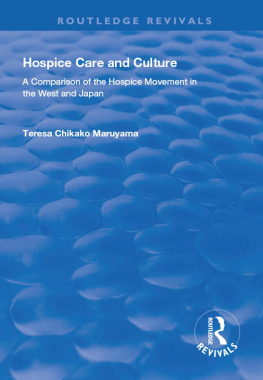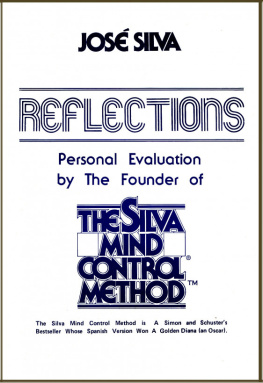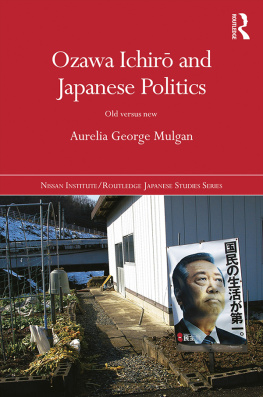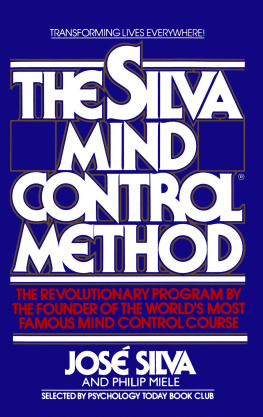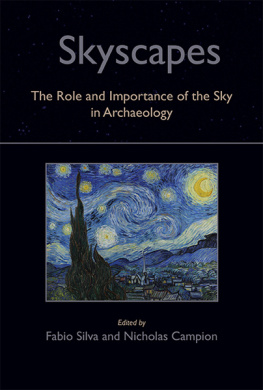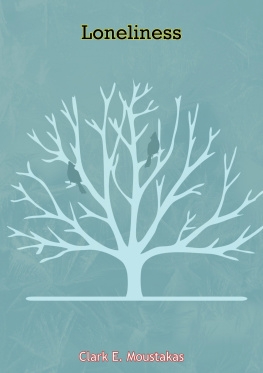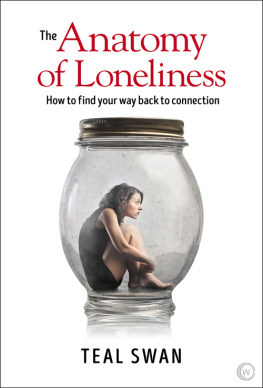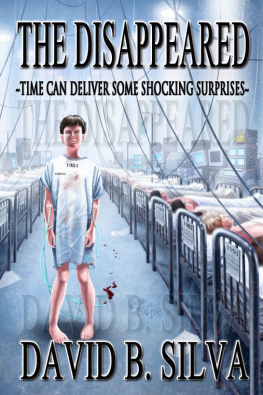
The Anatomy of Loneliness
ETHNOGRAPHIC STUDIES IN SUBJECTIVITY
Tanya Luhrmann, Editor
Forget Colonialism? Sacrifice and the Art of Memory in Madagascar, by Jennifer Cole
Sensory Biographies: Lives and Deaths among Nepals Yolmo Buddhists, by Robert Desjarlais
Culture and the Senses: Bodily Ways of Knowing in an African Community, by Kathryn Linn Geurts
Becoming Sinners: Christianity and Moral Torment in a Papua New Guinea Society, by Joel Robbins
Jesus in Our Wombs: Embodying Modernity in a Mexican Convent, by Rebecca J. Lester
The Too-Good Wife: Alcohol, Codependency, and the Politics of Nurturance in Postwar Japan, by Amy Borovoy
Subjectivity: Ethnographic Investigations, edited by Joo Biehl, Byron Good, and Arthur Kleinman
Postcolonial Disorders, edited by Mary-Jo DelVecchio Good, Sandra Teresa Hyde, Sarah Pinto, and Byron J. Good
Under a Watchful Eye: Self, Power, and Intimacy in Amazonia, by Harry Walker
Unsettled: Denial and Belonging among White Kenyans, by Janet McIntosh
Our Most Troubling Madness: Case Studies in Schizophrenia across Cultures, by T. M. Luhrmann and Jocelyn Marrow
Us, Relatives: Scaling and Plural Life in a Forager World, by Nurit Bird-David
The Likeness: Semblance and Self in Slovene Society, by Gretchen Bakke
The Anatomy of Loneliness: Suicide, Social Connection, and the Search for Relational Meaning in Contemporary Japan, by Chikako Ozawa-de Silva
The Anatomy of Loneliness
SUICIDE, SOCIAL CONNECTION, AND THE SEARCH FOR RELATIONAL MEANING IN CONTEMPORARY JAPAN
Chikako Ozawa-de Silva
UNIVERSITY OF CALIFORNIA PRESS
University of California Press
Oakland, California
2021 by Chikako Ozawa-de Silva
Library of Congress Cataloging-in-Publication Data
Names: Ozawa-de Silva, Chikako, author.
Title: The anatomy of loneliness : suicide, social connection, and the search for relational meaning in contemporary Japan / Chikako Ozawa-de Silva
Other titles: Ethnographic studies in subjectivity ; 14.
Description: Oakland, California : University of California Press, [2021] | Series: Ethnographic studies in subjectivity ; 14 | Includes bibliographical references and index.
Identifiers: LCCN 2021016933 (print) | LCCN 2021016934 (ebook) | ISBN 9780520383487 (hardback) | ISBN 9780520383494 (paperback) | ISBN 9780520383500 (ebook)
Subjects: LCSH: LonelinessSocial aspectsJapan21st century. | SuicideAnthropological aspectsJapan21st century. | Social mediaJapanInfluence.
Classification: LCC BF575.L7 O385 2021 (print) | LCC BF575.L7 (ebook) | DDC 155.9/2dc23
LC record available at https://lccn.loc.gov/2021016933
LC ebook record available at https://lccn.loc.gov/2021016934
Manufactured in the United States of America
25 24 23 22 21
10 9 8 7 6 5 4 3 2 1
for Chan Chan
Contents
Acknowledgments
When I think about this project, I cannot help thinking about interdependence, a well-known concept in Buddhism, and my personal favorite. This book would not have been possible without so many peoples kindness, acceptance, and understanding. There are too many people whom I want to thank to list them all here, and I am aware there are many people who must have assisted me in indirect ways that I dont even know of. Conducting field work is always a humbling experience. I was often touched by the kindness of my interlocutors, people who made this project possible and were so generous with their time. Each person who was involved in the process of this project played a unique and invaluable part.
When I reflect on how this book project started, I have to go back over twenty years to the year 2000. I was a visiting research fellow at Harvard University, where I found the Friday Morning Seminar (FMS) of Harvards Medical Anthropology program continuously inspiring. That was probably when I began my long-term interests in subjectivity and loneliness. I would like to thank Drs. Mary-Jo Good and Byron Good, who were running the FMS during my visiting year and who have provided long-term support and kindness ever since. Among the many inspiring presenters at FMS, I would like to thank Dr. Joo Biehl and Dr. Robert Desjarlais for sharing their work with us. I still remember their talks and discussions to this day and have internal dialogues with their books each time I read or teach them.
I am grateful to Dr. Arthur Kleinman who, knowing about my work on internet group suicide in Japan, encouraged me to develop this into a book project on loneliness at a time when I was wondering about whether to move on to a completely different (and less emotionally taxing) subject. Dr. Junko Kitanaka also played a major role in making my research possible, inviting me to spend my sabbatical year as a visiting professor at her institution, Keio University in Tokyo, where she introduced me to a number of key figures in psychiatry and suicide research. She also read drafts of my articles on suicide and provided much insightful feedback. Dr. Kenji Kawano, then at the Japanese National Center of Neurology and Psychiatry (NCNP), and currently a professor at Ritsumeikan University, invited me to meet his team at NCNP, who were all working on internet group suicide and suicide among youth, and to a number of other meetings, workshops, and conferences. Among the team members at NCNP, I also would like to thank Dr. Ytaro Katsumata and Dr. Sueki Hajime for generously sharing their research and time.
I am so grateful to Dr. Yukio Saito, the founder of the Inochi no Denwa suicide crisis hotline, who met with me several times to share his vast experience and introduced me to a number of additional experts in suicide and mental health in Japan. His kindness and sincere commitment to suicide prevention touched me deeply. I thank also Dr. Tetsuji Ito at Ibaragi University for including me in his Qualitative Methods Working Group on 3.11 in North Ibaragi. I would also like to thank and acknowledge Dr. Ichiro Yatsuzuka, a member of this working group, who kindly gave me permission to use pictures he took during our visit to North Ibaragi in this book. I am grateful for his kindness and kind words.
I would also like to thank the students who volunteered to do interviews with me, whose narratives make up a chapter of this book. They often spent two hours in an interview, and several agreed to multiple interviews. Their sincere attitude to their lives, their warm feelings toward their family and friends, and their sharing of their hopes and anxieties about their futures moved me and provided insight into several key issues of this book. Although their names have been changed here to protect their identities, I remember them fondly and hope to meet with them again in future.
At Emory University, I am so grateful to the numerous colleagues and graduate students who read draft chapters and provided detailed feedback and discussion. The chapter on North Ibaragi and the 3.11 disasters in Japan was heavily revised after receiving this feedback, and my students in particular encouraged me to not shy away from speaking about my personal experiences as the events unfolded. Dr. Anne Allison, Dr. Claudia Strauss, Dr. Bobby Paul, Dr. Suma Ikeuchi, Elena Lesley, and others all read the entire book manuscript (some of them multiple times), and their comments and suggestions have unquestionably strengthened it. I am so grateful for their interest, time, and insight.




